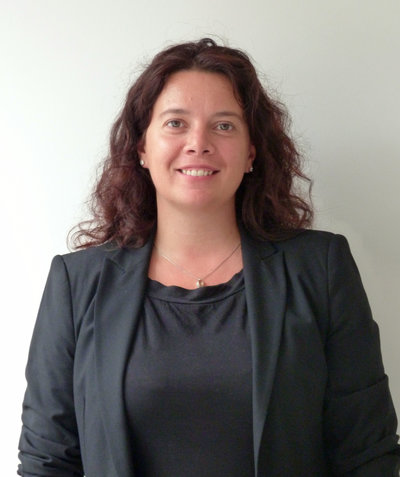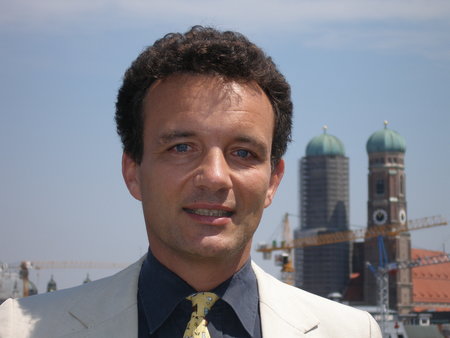
Photo: How-European-cities-tackle-tourist-safety
How European cities are tackling tourists’ safety
25 August 2015
by Jonathan Andrews
Cities are often loath to market themselves as ‘safe’ with many fearing this will deter a would-be tourist. Jonathan Andrews explores how a new European project is helping cities and the tourism sector work together to improve tourists’ security
Despite Europe attracting 60 million international tourists a year, which contributes 5 percent of GDP and provides 12 percent of jobs in the EU, there is little official research or data regarding tourism and safety in cities.
One reason according to Rob Mawby, visiting Professor of Criminology and Criminal Justice from the University of South Wales, United Kingdom has been the reluctance from cities and the tourist sector to make the link with crime and terrorism.
“There is a general problem within the tourist sector with regard to crime that ‘no news is good news’, and that any security measure is an acknowledgement that there is a problem,” says Mawby. “We’ve experienced problems in the past with gaining cooperation for research for this reason.”
To help overcome this, the European Forum for Urban Security (Efus), a network of 250 local authorities dedicated to urban security, launched a two-year project in 2013 with seven cities, which were diverse in geography, size and the type of tourists they attract.
The project has drawn on the experience of Alba, Barcelona, Brasov, Munich, Rome, Saint-Denis and Brussels, along with the support of criminology and tourist experts, to establish recommendations to help other cities that are facing similar issues.
“Europe is the world’s number one tourist destination, and within the continent cities represent the most important tourist hotspots,” explains Carla Napolano, Programme Manager at Efus. “It seemed essential therefore to work on this topic directly with the cities concerned to work towards a greater transfer of knowledge and a harmonised understanding of the conditions for urban security.”

Efus, which is backed by the European Commission, has taken an increasing interest in urban security and tourism since its foundation in 1987 when it began to promote local authorities as being best placed to develop and implement crime prevention policies. Efus’s first ever conference on urban security and tourism was held in Paris this June when preliminary conclusions and recommendations were released from the European Security and Tourism Project.
Although he had worked on several tourism and security projects in the past, Mawby was quick to join the project after reading the proposal. “Two features particularly excited me: the fact that it was very much research in action,and that previous tourism and security research has tended to focus on resorts whereas this focuses on cities.”
Through thematic local audits, field observations and exchanges with experts, the seven cities designed their own local security and tourism strategies that covered three main objectives: to raise awareness among tourists of risk prevention and local customs; to improve the way tourists are welcomed and the support they receive in case of an incident; and to foster peaceful coexistence between tourists and local residents.
A focus on prevention
Munich, the capital of Bavaria in Germany, is well known for its trade fairs, exhibitions, cultural and sport centres and is the 19th most visited city in Europe. The Oktoberfest in particular raises issues of tourist security as Dr Raymond Saller, Project Coordinator from Munich City Hall, neatly summarises: “Seven million people visit us in Oktoberfest and drink five million steins of beer in two weeks.”
During the Oktoberfest in the last two years, Munich put in place extra safety measures, including deploying more police officers with special training, hiring private security guards, providing interpreters on site, and initiating the ‘Safe Oktoberfest for women and girls’, a project that cooperates with non-profit organisations, police and volunteers.
In addition as part of Munich’s broader strategy on safety at large events, the city has put the emphasis on preventative measures and strengthening social cohesion at the local level. Its focus begins with schools by aiming
to reduce the number of high school dropouts and includes initiatives to facilitate citizens access to the local labour market. Attractive urban spaces are given importance as are CCTV cameras and the public presence of security officers.
“Munich already has a high security standard,” explains Dr Saller. “But our BaSiGo project which draws up a preventative concept to increase safety at large events with our consortium partners, now defines a common security standard for the whole of Germany.”
Once the events have finished a public-private roundtable is held with all stakeholders, including shopkeepers, police, fire fighters, and hotel owners with any problems evaluated and solutions proposed.
Dr Saller is also quick to reiterate Mawby’s findings on cities’ reluctance to implement a visible strategy on tourists’ safety. “The fear is that if anybody is underlining Munich as a safe city, the target group may wonder why the city needs to emphasise this, questioning if there might be any evidence to the contrary.”

Similar concerns were raised by the hotel industry when Brussels set out to launch its ‘Safe in the city’ campaign. Brussels was one of the first cities to establish its own department to take charge of crime prevention, BRAVVO, and since 2012 has developed campaigns targeting tourists with a focus on prevention, namely pickpocketing and car thefts.
As in any modern city the fight against pickpocketing involves both prevention and law enforcement. BRAVVO reports that this mix has helped them reduce the number of incidents from 4,950 in 2012 to 3,503 in 2014.
The latest addition to the suite of initiatives the city has undertaken are four, 20-second animated clips that were developed through the Efus project. Launched in June, the clips depict humorous animations of a visitor to the city in different ‘risk’ settings. From withdrawing money from a cash machine to using public transport, the clips are shown on visit.brussels.tv–available in more than 8,000 hotel rooms–in Brussels youth hostels, and on the visitbrussels.be website and at its information offices.
“In the framework of this particular campaign, we could see that the sector is particularly vigilant not to frighten tourists, to avoid overlapping other initiatives and to deal with language barriers,” says Thierry Hendrickx, Auditor of BRAVVO, who led the local safety audit for the Efus project. “This explains partly why we included some humour, showing that anyone can become a victim anywhere and that security is a matter for everyone.”
While the campaign is mainly aimed at tourists and expatriates, Hendrickx believes the advice on prevention can also help residents and communities who are in the city everyday including elsewhere in the Brussels-Capital Region and in other Belgian or foreign cities.
Greater focus needed for data collection
The European Tourism and Security Project has also enabled Efus to pinpoint the main challenges that the seven cities were confronted with–mainly what happens after a crime against a tourist has occurred–including the lack of relevant data on this and the need to find a balance in the services offered to tourists and those aimed at local residents.
“Statistics from the police, support victims services, hospitals or prevention services did not allow specific information to be collected about tourist victims or those responsible for antisocial behaviour or acts of vandalism,”
says Napolano from Efus. “This is a consequence of the way in which these services have been designed, and the way their actions have been prioritised.”
Mawby confirms that the most obvious deficiency was a lack of basic information on which policies could be based, especially the lack of crime statistics dedicated to helping identify the exact problems.

“Only Barcelona recorded whether or not victims of crime were tourists, yet no cities systemically recorded the residential status of offenders,” he says. “The need to collect and analyse tourism-related crime data is crucial. Improving the information in police statistics is a relatively cheap step that would add enormously to our knowledge and help inform policy.”
He is also quick to wave caution at victim survey data, perceiving them as weak in that they don’t include or undercount tourists with most focusing on the resident population. Similarly with hotel sampling, such as that used in Brussels, there are limits depending on when they are taken. Those tourists surveyed at the beginning, middle or end of a holiday, could vary widely as a crime could occur before or after the survey was taken.
“In an ideal world my wish list would include the data to be broken down by the victim’s status,” adds Mawby. “Resident, tourist, second home owner, temporary resident, seasonal worker, recent arrival, holiday maker, business visitor and so on.”
To address these issues and other limitations, Napolano says that a working group will be established to gather cities and professionals in the tourist sector to build on the project. The findings will also be shared with Efus’ other working groups that focus on nightlife and the management of large-scale events.
The recommendations have been summarised into a leaflet in eight languages with a full-extended version, Security and Tourism: Concerted Local Policies, to be launched in October.
“The fact that these seven cities did sign up is incredibly encouraging,” comments Mawby. “While in some, there clearly is an issue with tourists’ safety, in other cities, there doesn’t appear to be a problem at present and that’s important. Putting in place measures to monitor the situation and address problems before they escalate is the ideal approach to crime prevention.”











